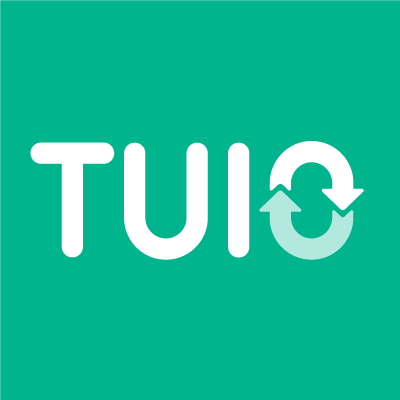Introduction
In today’s competitive educational landscape, effective school marketing is essential to attract and retain students. With the right strategies, schools can enhance their visibility, communicate their strengths, and build strong relationships with prospective families. This comprehensive guide explores various school marketing strategies, including digital marketing, social media engagement, and innovative ideas to help your school stand out.
Understanding School Marketing
School marketing involves promoting your institution’s strengths to attract prospective students and parents. It encompasses a range of activities, from traditional advertising to digital marketing, social media engagement, and community outreach. Effective school marketing requires a strategic approach, integrating multiple channels to reach a broad audience.
Developing a School Marketing Plan
A well-structured marketing plan is crucial for success. Here are the key components:
- Identify Your Target Audience: Understanding your target audience is the first step in creating an effective marketing plan. Identify the demographics and preferences of prospective students and parents. Consider factors such as age, location, interests, and educational needs.
- Set Clear Goals: Define what you want to achieve with your marketing efforts. Goals could include increasing enrollment, enhancing brand awareness, or improving community engagement. Clear, measurable goals will help guide your strategy and evaluate your success.
- Budget Allocation: Determine the budget for various marketing activities. Allocate resources to different channels based on their potential return on investment (ROI). Ensure that your budget aligns with your overall goals and allows for flexibility as needed.
- Marketing Channels: Choose the right mix of traditional and digital channels to reach your audience effectively. Traditional channels might include print advertising, direct mail, and community events. Digital channels encompass your website, social media, email marketing, and online advertising.
Digital Marketing Strategies for Schools
Digital marketing is a powerful tool for reaching a broader audience. Here are key strategies to consider:
- Search Engine Optimization (SEO): To rank higher in search engine results, schools should focus on optimizing their websites for keywords that prospective parents and students are likely to search for. Instead of just general terms, use specific phrases that reflect what parents are looking for, such as “best school in [location],” “top-rated private school in [city],” or “affordable schools near me.”
Here are some tips for schools to improve their SEO:
- Local SEO:
- Use Local Keywords: Incorporate location-based keywords like “top private school in New York” or “best elementary school in Chicago” into your website content, meta descriptions, and titles.
- Google My Business: Ensure your school is listed on Google My Business and keep your profile updated with current information, photos, and reviews.
- Local Listings: Get your school listed in local directories and educational portals.
- Content Creation:
- Blogs and Articles: Write informative and engaging blog posts about your school’s unique programs, success stories, and educational philosophy. Use keywords naturally within the content. For example, a blog post titled “How Our STEM Program Makes Us the Best School in [City]” can help attract search traffic.
- Parent Testimonials and Case Studies: Publish stories and testimonials from current parents and students. These not only provide social proof but also help with SEO if they include relevant keywords.
- Blogs and Articles: Write informative and engaging blog posts about your school’s unique programs, success stories, and educational philosophy. Use keywords naturally within the content. For example, a blog post titled “How Our STEM Program Makes Us the Best School in [City]” can help attract search traffic.
- On-Page SEO:
- Meta Tags: Use relevant keywords in your meta titles and descriptions. For example, “Discover the Best Private School in (City) – Exceptional Education and Care.”
- Internal Linking: Link to other pages on your website to keep visitors engaged and improve SEO. For instance, link blog posts to your admissions page or program descriptions.
- Mobile Optimization:
- Ensure your website is mobile-friendly. Many parents will search for schools on their phones, and a mobile-optimized site can improve your rankings on Google.
- Content Marketing: Create valuable and engaging content to attract and inform your audience. This could include blog posts, videos, infographics, and eBooks. For example, write articles on topics like “marketing ideas for school admission” or “how to create a school marketing plan.” Share success stories, educational resources, and insights into your school’s unique offerings.
- Email Marketing: Use targeted email campaigns to communicate with prospective students and parents. Segment your email lists based on demographics, interests, and behaviors. Personalize your messages and include compelling calls to action (CTAs) to encourage engagement.
- Online Advertising: Invest in online advertising to increase your school’s visibility. Use platforms like Google Ads, Facebook Ads, and Instagram Ads to reach your target audience. Tailor your ads to highlight your school’s strengths and unique features.
Innovative Marketing Ideas for Schools
Stand out with creative and innovative marketing ideas:
- Virtual Tours: Offer virtual tours of your campus to engage prospective families who cannot visit in person. Use 360-degree videos and interactive features to showcase your facilities, classrooms, and extracurricular activities. Highlight the unique aspects of your school’s environment and culture.
- Student Ambassadors: Leverage the experiences and stories of current students to attract new enrollments. Create a student ambassador program where selected students share their perspectives through blogs, videos, and social media posts. This authentic voice can resonate well with prospective families.
- Community Events: Host events and activities that engage the local community and showcase your school’s strengths. Examples include open houses, workshops, and family fun days. Use these events to build relationships with prospective families and demonstrate your school’s commitment to the community.
- Alumni Networks: Engage with your alumni network to promote your school. Highlight successful alumni stories on your website and social media. Encourage alumni to participate in school events, provide testimonials, and refer new students.
How to Market a School Successfully
Successful school marketing requires a multi-faceted approach:
- Leverage Social Media: Use platforms like Facebook, Instagram, Twitter, and LinkedIn to connect with your audience and share school updates. Post regularly and engage with your followers by responding to comments and messages. Share a mix of content, including news updates, student achievements, and behind-the-scenes glimpses.
- Develop a Strong Online Presence: Ensure your school’s website is user-friendly, informative, and visually appealing. Include detailed information about your programs, faculty, and admission process. Use high-quality images and videos to make your website engaging.
- Engage with Parents and Alumni: Build strong relationships with current and past families to generate word-of-mouth referrals. Create a parent and alumni network that supports your marketing efforts. Host events, send regular newsletters, and involve them in school activities.
- Use Testimonials and Reviews: Showcase testimonials and reviews from current students, parents, and alumni on your website and marketing materials. Positive feedback can build trust and credibility with prospective families.
Creating a Social Media Marketing Strategy for Schools
A robust social media strategy can significantly boost your school’s visibility:
- Content Calendar: Plan and schedule your posts in advance to maintain consistency. Use a content calendar to organize your social media activities and ensure a steady flow of content. Include a mix of content types, such as photos, videos, articles, and event announcements.
- Engaging Content: Share a variety of content that appeals to your audience. Highlight school events, student achievements, and educational resources. Use stories and live videos to provide real-time updates and engage your audience.
- Interaction: Respond to comments and messages promptly to foster engagement and build a community. Encourage followers to participate in discussions, share their experiences, and provide feedback. Create polls and ask questions to generate interaction.
- Analytics and Insights: Monitor your social media performance using analytics tools. Track metrics such as reach, engagement, and conversion rates. Use this data to refine your strategy and improve your social media presence.
Budget Allocation for School Marketing
Effective school marketing requires a well-planned budget to ensure that all marketing activities are adequately funded. On average, schools allocate between 3-5% of their total budget to marketing efforts, although this can vary depending on the size and type of the institution. Private schools and institutions with more competitive enrollment environments may allocate a higher percentage. The marketing budget typically covers digital marketing, traditional advertising, community engagement activities, and promotional materials. Proper budget allocation allows schools to implement comprehensive marketing strategies that enhance visibility, attract prospective families, and foster community relationships.
Utilizing Marketing Templates and Samples
Use templates to create a comprehensive marketing plan. These templates can guide you through the process of setting goals, identifying target audiences, and planning marketing activities. Customize the templates to suit your school’s specific needs.
- Marketing Plan Templates: Use templates to create a comprehensive marketing plan. These templates can guide you through the process of setting goals, identifying target audiences, and planning marketing activities. Customize the templates to suit your school’s specific needs.
- Email Campaign Templates: Develop professional email campaigns using pre-designed templates. These templates can help you create visually appealing and effective emails. Include clear CTAs and personalize your messages to increase engagement.
- Social Media Post Templates: Create visually appealing social media posts with ease using templates. Use tools like Canva to design posts that are consistent with your school’s branding. Templates can save time and ensure a professional look for your social media content.
Case Studies of Successful School Marketing
- Case Study 1: Arbor School, Dubai
Objective: Increase brand awareness and student enrollment for a new school. Strategy: Nexa developed a comprehensive digital marketing strategy for Arbor School, focusing on environmental mindfulness and sustainability. They implemented targeted social media campaigns, SEO, and geo-location targeting to reach parents looking for schools in Dubai. Results: The campaign successfully established Arbor’s brand in the competitive Dubai market, leading to high-quality leads and increased enrollments shortly after the school’s opening (Growth Agency in the UAE, UK, USA & AUS).
- Case Study 2: ENSR International School, Switzerland
Objective: Transform the student recruitment strategy and increase admissions. Strategy: Higher Education Marketing (HEM) utilized targeted SEO and Google Ads campaigns to attract prospective students. They also optimized the school’s website and conducted staff training to improve communication workflows. Results: The strategic digital marketing efforts led to a 10% annual increase in admissions, showcasing the effectiveness of specialized marketing in education (Higher Education Marketing or https://www.higher-education-marketing.com/case-studies/ensr-international-school).
- Case Study 3: Randolph-Macon Academy, Virginia
Objective: Increase enrollment and position the school as an attractive option for academic achievers.
Strategy: HEM worked with Randolph-Macon Academy to enhance their online presence through SEO optimization, improve their lead generation mechanisms, and highlight the school’s unique value proposition. Results: The collaboration resulted in increased enrollment leads and improved the school’s reputation as a strong academic institution
These case studies illustrate the power of well-executed digital marketing strategies in achieving significant improvements in school enrollment and brand positioning. By leveraging SEO, targeted advertising, and community engagement, schools can effectively attract and retain students.
Conclusion
Effective school marketing is a blend of strategic planning, creative ideas, and consistent execution. By leveraging digital marketing, social media strategies, and innovative approaches, your school can attract more students and build a strong reputation. Remember to set clear goals, understand your target audience, and use a variety of channels to reach them. Engage with your community, showcase your school’s strengths, and continuously refine your strategies based on feedback and performance data.ths, and continuously refine your strategies based on feedback and performance data.
Book Your Free Demo
















